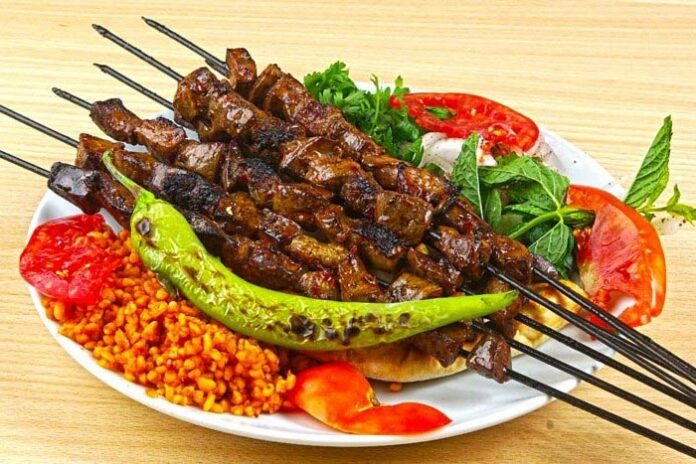Walking Tour Ephesus – Discover the Flavors of Turkish Food Culture
Why Turkish Cuisine Ranks Among the Best
Many food experts say Turkish cuisine is among the top three in the world, alongside French and Chinese. Some people might agree, while others may be unsure.
But once you explore Turkey’s history, this ranking starts to make more sense. Join a walking tour Ephesus to see how food and culture connect.
Roots of Turkish Food Culture
The original Turks lived as nomads. They moved from East Asia—including Western China, Tibet, and Mongolia—to what is now Turkey.
Along the way, they collected flavors and recipes from other cultures. This created a very diverse and rich food culture.
For example, manti (small dumplings with meat and yogurt) likely came from Chinese dumplings. Later, dolma (stuffed vegetables) evolved from manti.
The nomads mostly ate animal products like lamb and goat. To avoid waste, they invented ways to preserve meat.
One famous example is pastirma, air-dried and spiced beef. It comes from Kayseri in Central Anatolia and was made for long-term storage.
This blend of traditions led to the unique and flavorful Turkish cuisine we enjoy today. Learn more with expert Ephesus guides.
Ottoman Empire and the Evolution of Turkish Cuisine
The Ottoman Empire ruled for nearly 600 years over parts of Europe, Asia, and Africa. The empire controlled spice routes and trade.
This influence shaped food from North Africa to Eastern Europe and the Middle East. Today, these areas still share similar dishes.
In Ottoman palaces, food was taken seriously. Kitchens were huge, with chefs who specialized in one type of dish only.
One chef might only cook pilaf. Another would prepare only baklava or kebabs. This made each dish perfect and unique.
Dried fruits and high-quality spices were used in many recipes. This tradition continues today across Turkey and in many tour packages Bulgaria.
After the empire ended in 1923, the new Republic of Turkey kept many food traditions. The modern cuisine we know today developed from this rich history.
You can taste this history on a walking tour Ephesus, where food and culture blend beautifully.
Food’s Role in Turkish Daily Life
Food is a very important part of Turkish culture and daily routine. It brings families and communities together.
While some dishes are common across the country, every region has its own local cuisine. Even neighboring provinces may cook the same dish differently.
You might taste a dish in one town and find it completely different in another. This shows how diverse Turkish food really is.
You can explore these differences through a private tour Istanbul or other regional food experiences.
Freshness Is the Heart of Turkish Cooking
Fresh ingredients are key to Turkish food. In villages, vegetables come straight from the garden to the kitchen.
Meat comes from local farms or butchers. Meals are often made the same day using the freshest food available.
As more people move to cities and work long hours, daily food routines are changing. Some traditions are slowly fading.
But in small towns and rural areas, people still cook with fresh ingredients daily. Some urban residents also try to follow this practice.
Freshness matters, whether you’re in a big city or a quiet village. That’s one reason Turkish dishes taste so good. Have questions? Feel free to contact us.
Taste Turkey on a Walking Tour Ephesus
Turkish food is full of flavor, history, and variety. From nomads to sultans, every period added something special to the cuisine.
A walking tour Ephesus offers more than ancient ruins. It gives you a taste of Turkey’s deep cultural and culinary traditions.
Enjoy the food, meet the locals, and learn the stories behind every dish. Book your tour today and experience Turkish culture through its unforgettable flavors.




